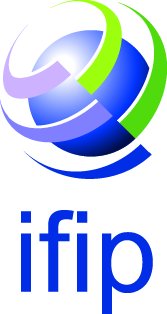WORK-IN-PROGRESS SUBMISSIONS
Work-in-progress submissions are intended for presenting preliminary results. They are submitted and published in the main ACM proceedings (and made available in the ACM Digital Library) as paper, but are displayed as a poster at the conference. During a special Work-in-Progress Session, you will have the opportunity to explain your work to other conference attendees.
KEY FACTS
|
SUBMISSIONS
Work-in-Progress should be submitted in the form of a maximum 6 pages paper (including figures and references) in PDF format (SIGCHI Extended Abstracts). Work-in-Progress paper submissions are not anonymised. When submitting your work-in-progress 6 page paper, you will have to choose one of the one of eight areas to submit your work in:
- Content Production: research on traditional and novel content production paradigms for the new media landscape. Including cross-platform services, interactive and transmedia storytelling, and personalization (user modeling and adaptive user interfaces)
- Systems & Infrastructures: descriptions of the architecture, design, deployment, and evaluation of systems and infrastructures that support television and online video. Including delivery, transmission, and synchronization of media that leverages TV and online video experiences in a number of scenarios such as gaming, education, health care, etc.
- Devices & Interaction Techniques: descriptions of the design, architecture, usage and evaluation of devices and interaction techniques (e.g., gestures, multi-sensory interaction) that enable a connected ecosystem of devices, creating valuable new capabilities for television and online video.
- Experience Design and Evaluation: studies on how people interact with television and online video and how such systems should be designed to provide most engaging and novel user experiences. Including social and shared experiences in the interaction with television and online video.
- Media Studies: studies that try to understand consumption practices and changing behavior, including research on ethical, regulatory, and policy issues. Including novel mechanisms for evaluating the impact of television and online video, and audience measurements.
- Data Science and Recommendations: descriptions of advanced computational systems based on content and/or user generated data to support collaborative filtering, interactive/synchronous environments, collective intelligence and crowd-sourcing, or location-based and context-aware applications and services.
- Business Models & Marketing: research and practice around novel business models and marketing strategies for the new media landscape of television and online video. Studies around novel ways of advertisement models and strategies.
- Innovative Concepts and Media Art: research on innovative design strategies, new concepts, and prototype experiences for television and online video. Including case studies and media artworks and performances.
WORK-IN-PROGRESS FINAL VERSION AND PRESENTATION DURING THE CONFERENCE
After acceptance, a final, revised camera ready version of the paper will be required in electronic form for publication in the adjunct proceedings. At the conference you will have a 97cm x 147cm poster board, suitable for a poster up to A0 format, to display your work during the Work-in-Progress Session.
CONTACT INFORMATION
For further details please get in touch with the Work-in-Progress Chairs:
Hokyoung Blake Ryu, Hanyang University, South Korea
Jeroen Vanattenhoven, iMinds / KU Leuven, Belgium







